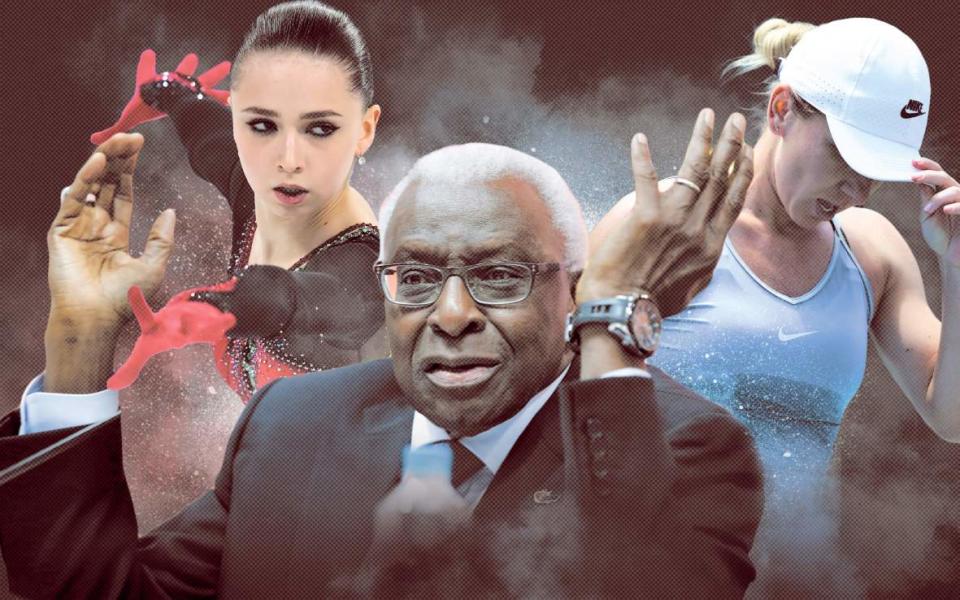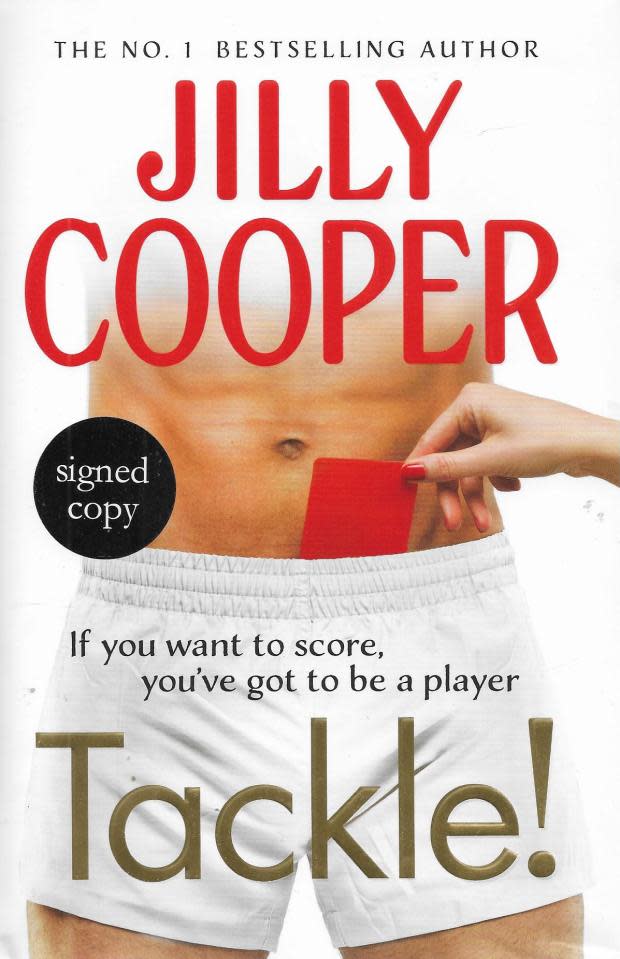Ed Warner: On bad actors and their pernicious influence on so many sports

Last week’s celebration of first class sport for £20 or less elicited a slew of suggestions of other events away from the Premier League circus.
You’ve already missed the chance to watch the Real Tennis Open at Queen’s for free. However, I’ve been reminded that women’s rugby extends beyond the Six Nations. Try SuperPWR weekend next month.
£11 will get you into cycling’s National Track Championships in Manchester this weekend, or for exactly half that Bowls England’s National Finals in August.
The cycling prompt came from a former staffer wielding a sharpened spoke, who suggested I’d not wanted to mention the event “given your – largely unexplained – antipathy to British Cycling.”
Antipathy isn’t quite right as it suggests emotions which are absent in this case. I will confess to frustration, around the time of GB cyclists’ medal-winning zenith, that their governing body was so feted by the sporting establishment in spite of its evident reluctance to modernise.
The intervening years have seen the aura around British Cycling fade, hand in hand with a welcome stiffening of its structures, and now new leadership under the excellent Jon Dutton. The sharpened spoke got me thinking again, though, about the pernicious influence of bad actors in so many sports.
Such thoughts, unfortunately, can always appear timely. In recent days Simona Halep, serving a four-year ban from tennis, announced she is suing a Canadian supplement company she claims is responsible for her failed drugs test. Who is the villain here? Let a New York court decide.
The same length ban for child ice skating prodigy Kamila Valieva is well known, but you may have missed the news that the Russian team she was part of at Beijing 2022 has not been stripped entirely of its results. Instead Valieva’s scores have simply been deducted, leaving her compatriots with bronze rather than gold medals.
The Canadians who originally finished fourth – and remain fourth – are fuming. Rightly so. Who is to say how differently the competition might have unfolded had Valieva not been taking part?
Team sports are especially complex moral mazes when cheating is uncovered. Are young athletes always unwitting dupes of unscrupulous coaches, or do they deceive to stay on the team?
Does a single failed drugs test suggest a systemic problem across a squad? How to frame our outrage in sports that rely as much on tactics and skill as brute strength and endurance?
Last week journalist Nick Harris stepped into this minefield with a post on his new Sporting Intelligence newsletter reminding us of the many players across European football who have fallen foul of the anti-doping rules, or had a cloud of suspicion hanging over them. Some very big names.
His conclusion expresses frustration at attitudes to doping in the game:
[Gary] Neville and [Roy] Keane are only now speaking about suspicions they had nearly 25 years ago. Wait until 2050 and somebody will reveal what they know about drugs in football in 2024.
Nick Harris, Sporting Intelligence
Athletics’ worst actor was for almost 16 years its global president, the late Lamine Diack. The sport has for decades been plagued by bad actors, and not only in the world’s doping hotspots but closer to home, too: Dwain Chambers immediately before my time at UK Athletics, Mo Farah’s coach Alberto Salazar during it, and CJ Ujah, who failed a test at the Olympics after it.
Time was there were rumours of global track and field superstars having a “golden passport” that allowed them to avoid failing a test. Maybe apocryphal, but maybe not.
When running a sport, it’s always best to hope for the best, but definitely prepare for the worst. And treat any resistance to the highest standards of governance with suspicion.
Stones maths
A round of the FA Cup being played entirely midweek doesn’t sit well with me. Not that it will bother sixth tier Maidstone United who travel to Coventry City on Monday. Guess the club might have hoped for Premier League opposition though, if only to maximise the rewards from their deep cup run.
One of the Stones directors published a fascinating analysis of their finances in the Property Chronicle after the fourth-round triumph against Ipswich Town. A £680k boost to that point represented a 40 per cent uplift to annual turnover, more than enough to wipe out last year’s £200k loss and fund a needed new artificial pitch.
Monday’s match, live on TV, will deliver a further cash windfall. Worth reading Oliver Ash’s piece on Maidstone’s maths here. He concludes: “Long live the FA Cup!” Amen to that.
Maybe don’t Visit Rwanda
Shirt-sleeve sponsors pay a lot for very little. You might just remember the logo plastered on the arms of your favourite football team, but the opposition’s?
One exception could be Arsenal’s “Visit Rwanda” sleeves. Maybe because this is a long-standing sponsorship (almost six years now, at a reported cost of £10m a year to the Rwanda Development Board) or perhaps simply because it seems a strange relationship.
I sat next to representatives of both Rwanda and Arsenal at a recent awards lunch. They spoke engagingly of the country’s commitment to building a reputation for hosting international sporting events as a means of promoting tourism.
Cycling’s Tour du Rwanda is underway ending this Sunday, there’s Ironman 70.3 Rwanda in August and the Basketball Africa League play-offs and final will be held in Kigali.
Fifa’s congress last year was held in Rwanda’s BK Arena. It witnessed the anointing of Gianni Infantino for a third term as president. I hope (but am not holding my breath) that football’s governing body is taking a close interest in Rwanda’s suspension of Congolese footballer Heritier Luvumbu for a goal celebration recognising those killed in the conflict in the DRC.
British politicians might take a look too given the current controversy about deportation of migrants to Rwanda. Doesn’t take much to undo years of reputation-building hard work, sleeve logos and all.
Crouching tiger
Former sports minister Tracey Crouch is standing down at the next election. As figurehead for the Fan-Led Review of Football Governance, she is surely a shoo-in to be the first chair of the independent regulator for the game.
I’m no fan of the concept of the regulator – my concerns exacerbated by the suggestion reaching me that it will have as many as 200 staff – but I can’t think of a better person to ensure it is agile and effective rather than a bloated deadweight.
Simulation
A copy of Jilly Cooper’s “Tackle” has been knocking about the house since Christmas. In an idle few hours between a run and Sunday afternoon football on Sky I thought I’d (ahem!) tackle it.
I found it barely readable for anyone who knows anything about football, although it was very helpful in providing clunky explanations for the uninitiated. Try these from the first few pages:
“Having kept more ‘clean sheets’, football slang for matches where he hadn’t let in any goals, than any other England keeper…”
“Watching Ryan pacing up and down the oblong section half-way down the touchline, known as the technical area…”

Give me JL Carr’s fabulous How Steeple Sinderby Wanderers Won the FA Cup any day. It did set me wondering why there are so few works of sporting fiction that truly pass muster.
David Storey’s iconic This Sporting Life obviously. Benjamin Markovits’ The Sidekick, anchored in basketball. The Damned United, David Peace’s imagining of Brian Clough’s 44 day reign as manager of Leeds United. Ernest Hemingway’s The Old Man and the Sea (does marlin fishing count as a sport?).
Even though I’m a big consumer of novels, I’m struggling to build a list. Is it that sporting reality is more exhilarating (and at times outlandish) than fiction? Any and all suggestions of what to add to my list of must-reads gratefully received.
Ed Warner is chair of GB Wheelchair Rugby and writes his sport column at sportinc.substack.com

 Yahoo Finance
Yahoo Finance 